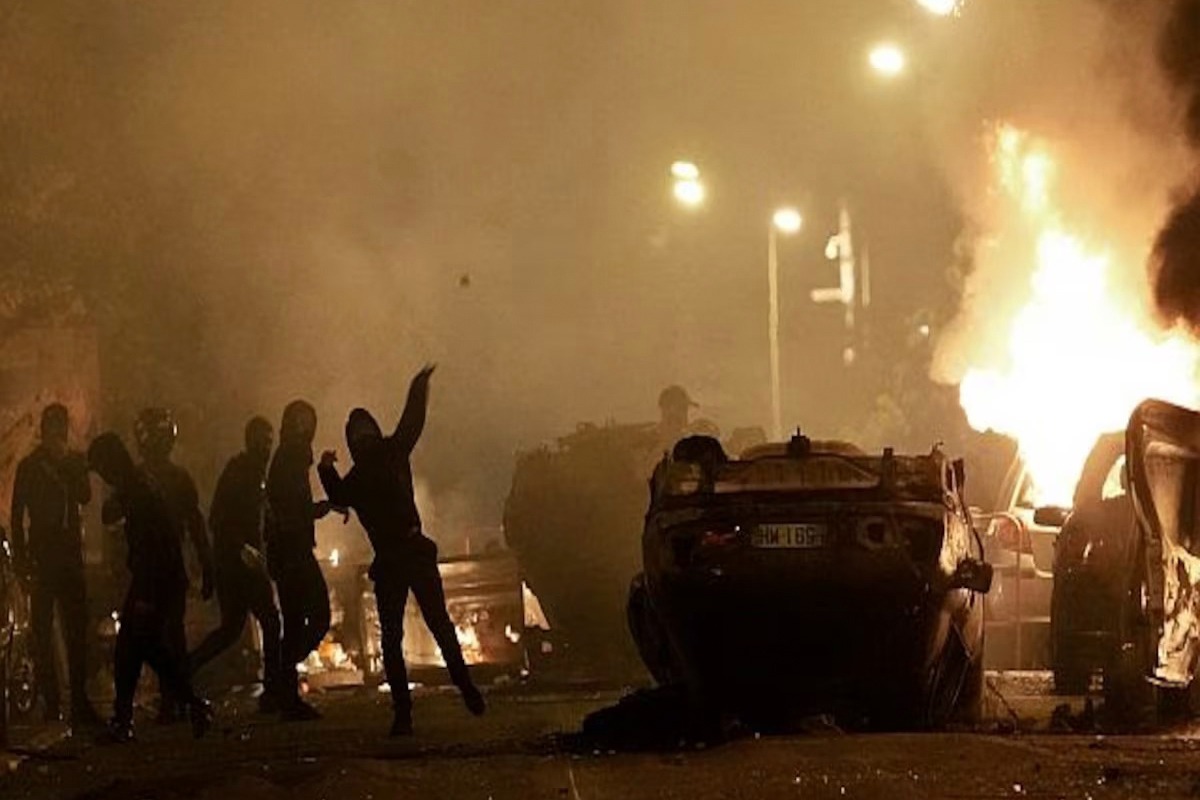Riots in France following the death of a young French man of Algerian descent have revealed that the immigration issue has reached a breaking point. The shooting of Nahel Merzouk by policemen for refusal to comply was followed by burning of public property, attack on institutions, assault on authority representatives and looting of shops in several French cities. Networks of drug trafficking were also involved in the violence. The riots took place in and around colonies of immigrants.
How did such sensitive areas develop in all cities? Immigration in France followed a very particular pattern. In the French perception, the issue is associated with a specific environment, the ‘suburbs’. Historian Pierre Vermeren explains how the situation in these suburbs reached an impasse. Vast construction programs were undertaken in the periphery of the major cities in the 1950s, to accommodate a French population growing because of the ‘baby-boom’ and the rural exodus. They were joined by immigrants who came for work and who were mostly European.
A turning point occurred in the 1970s, marked by deindustrialization and rising unemployment rates. Simultaneously, work-related immigration was replaced by ‘settlement immigration’ following the implementation of the ‘family reunification’ policy in 1979. This new wave of immigration, primarily from Africa’s Maghreb region, replaced the previous suburban population. While the middle class increasingly moved to newly constructed suburban homes, encouraged by government incentives and private interests, immigration continued to concentrate in these suburbs.
Repeated efforts of successive governments failed to stop the situation from deteriorating. Pauperization, unemployment and delinquency set in. To crown it all, Islamism and separatist trends emerged simultaneously. From the 2010s, a new big wave of extra-European immigration was channeled towards the middle-size cities, which thus developed their own problematic neighborhoods.
This inextricable situation was revealed by the scale of the riots, which were much more important than the previous ones in 2005. Ultimately, a survey found that 70 per cent of the French condemned these events and were in favor of declaring a state of emergency. As a matter of fact, controlling migration flows is one of the priorities for the majority in France.
According to a recent poll, 75 per cent of the French people want a referendum on whether to tighten norms for immigration. 65 per cent judged that there were already too many immigrants in France and that it was not desirable to welcome more of them. This proportion differs according to the profession – the highest being found among lower classes (69 per cent).
Yet a curb on immigration doesn’t seem to be on the political agenda.
The national statistics help to get a grasp of the present trend. A record number of 3.2 lakh residence permits were delivered in 2022, an increase by 17 per cent compared to the previous year. Student immigration has become the first motive, before family reunion which is still important. Economic migration is, in fact, much lower.
Where are these immigrants coming from? 48 per cent of them were born in Africa, mostly in Algeria, Morocco and Tunisia. 32 per cent were born in Europe. This major extra-European share dates back to the turning point of the 1970s.
France remains the second European destination chosen by asylum seekers. French authorities received 1.3 lakh requests for asylum in 2022, an increase by 31 per cent compared to 2021. 41 per cent of them were granted refugee status. The three main countries of origin are Afghanistan, Bangladesh and Turkey. In total, 5 lakh refugees live in France – a country of 6.8 crore people.
Increased legal immigration also pulls illegal immigration up. According to the Ministry of Interior, 6 lakh to 9 lakh illegal immigrants reside in the country. The ‘obligations to leave the French territory’ (OQTF) is rarely executed (less than 7 per cent).
In 2022, France had a total of 7 million people, representing 10 per cent of the total population. Many French experts believe this share may be underestimated.
However, a battle of figures is raging. Some demographers minimize the phenomenon, arguing that the people who leave the country should also be taken into account – even if they may not be the same.
François Héran, a professor at the Collège de France, tends to ‘naturalize’ immigration by explaining it is a worldwide process that does not really depend on national politics. Quantitatively or qualitatively, they aim at debunking the ‘Great Replacement’, deemed to be an irrational conspiracy theory. This term, forged by a French writer, expresses the concern about a major demographic and cultural change in the French population. It is now regularly used by the Right.
Demographers like Michèle Tribalat come to different conclusions. According to her calculation, 22 per cent of the French population are either immigrants or have at least one immigrant parent. In 2021, 28 per cent of the newborn children had at least one parent of extra-European descent. She’s advocating to introduce ethnic statistics in France, something that the republican universalist approach has refused until now. The lack of transparency of the national statistics creates a detrimental atmosphere of mistrust.
Both sides, however, recognize that the number of immigrants in the country is unprecedented. The logic behind immigration now relies on globalization and individual rights, and not on work. The administration, the judges and the European institutions played a key role in this shift of the norm.
Yet another draft law on immigration will be presented next September, to control immigration and improve integration. A report of the French Senate notes there is no real strategy or ambition behind it.
As the Left fears the public debate is shifting to the Right, President Emmanuel Macron recently declared in an interview that “France has always been a country of immigration and will continue to be one”.
Minister of the Interior Gérald Darmanin added that there is no point in being against immigration. “What does it mean to be against the movement of people on the Earth?”










